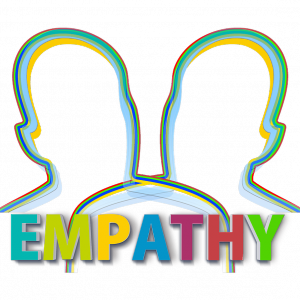In Chapter Three of my upcoming book, Influence: What’s the Missing Piece, we discuss the organizational culture and the landscape for high return on investment. One of these cultures is connectedness that results in friendships.
In Part One of our previous post on friendship and connection at work, we talked about the importance of having workplace friendships.
Today, we turn to how to actually build healthy friendships at work.
Understanding Why You Form Friendships
Simon Sinek says to always begin with the why, so let’s start there.
Studies show that you form friendships for two main reasons.
First, to gain a sense of reciprocated self-disclosure.
A recent Psychology Today article points this out:
Self-disclosure characterizes the moment when a pair leaves the realm of buddyhood for the rarefied zone of true friendship.
"The transition from acquaintanceship to friendship is typically characterized by an increase in both the breadth and depth of self-disclosure," asserts University of Winnipeg sociologist Beverley Fehr, author of Friendship Processes. "In the early stages of friendship, this tends to be a gradual, reciprocal process. One person takes the risk of disclosing personal information and then 'tests' whether the other reciprocates."
Note, this is also what differentiates a mentor from a friend. In a mentor relationship, there is predominantly a one-way flow of disclosure from the one being mentored to the mentor. The mentor may share past life experiences to help the protégé, but rarely are current challenges, fears, etc. shared. It’s important to realize whether you are in a mentor relationship or a friendship relationship as frustration can arise because you won’t feel the other party is disclosing to the degree in which you are.
Second, the person provides social identity support: the way in which a friend understands, and then supports, our sense of self in society or the group.
The thing to which we most tie our identity is the area in which we most look for affirmation. If I view myself primarily as an intellectual, then my friendships include people that affirm that idea. If your most cherished identity was being a high school quarterback, you are most likely to call a former fellow teammate "best friend."
We innately look for people that help us with our identity security. It’s the reason people join clubs (bands of people who identify like they do) or even street gangs.
Knowing the why of forming friendships can let us be wiser in our approach to them.
Set Boundaries On Interactions
Water cooler talk has been shown to improve morale and to achieve gains in productivity. However, spending exorbitant amounts of time chatting will affect work and can create the perception you lack discipline. Set some blocks of time for small talk of 5 minutes or so, and then jump back into the task at hand.
Use your lunch break to your advantage. That’s the perfectly acceptable time to deepen and to strengthen relationships. Just make sure you don’t appear cliquish.
If you work in a larger organization, be very careful about friendships crossing the hierarchical organizational chart. Your peers might think you are leveraging relationships to gain favor with the boss based upon the relationship and not upon the merit of your ideas or work. If you are a leader, balance your small-talk time between your reports so as not to undermine your credibility.
Be Intentional About Building Work Teams
If you need to create a team for a project, don’t only include your work friends. Beyond favoritism, research shows that friendships tend to form because we hold the same values as others. This often means we hold the same ideas and approach solutions in similar ways. By including those to whom you are not friends on the team, it ensures you won’t get trapped in group-think or friend-think. The diversity of people on the team can open up new possibilities and solutions, ideas and work approaches.
Be A Friend, Not a Gossiper
It happens in every workplace, and it is a function of human curiosity. We want to be “in the know.” If we think there is information we don’t have, we want to find out what it is. After all, we might need it as leverage for our purposes. And if we feel we possess information others don’t have, it’s very tempting to share it to help us feel more important. It’s why spying has been called the second oldest profession. One word about gossip: RESIST!
Slicing and dicing others, even in the name of sharing “news,” will come back and bite you. As you share the news, especially if you are breaking confidence, you are actually losing your ability to be trusted by others, even if you think your sharing it is gaining trust. We all subconsciously think, “Well they sliced and diced them behind their back, so surely they will do it to me too. I am not trusting them with anything.”
Equal Treatment Even if Not Equal Friendship
Even if you don’t have equal intimacy with everyone in the workplace, you can still treat everyone equally.
One of the biggest ways to do this is not to offer shortcuts to any process or procedure. If you have an established work process to accomplish a solution, gain a promotion, or anything else, don’t let someone shortcut that process. That is the surest way to draw the ire of other teammates. If someone is a work friend, it’s even more important you document that proper process and procedure was followed when they get a promotion.
Branch Out
Give others a chance to grow on you. Here’s a challenge: invite the person to lunch who you think is least like you or least likely to be your friend. Don’t be fake, as if you are going to instantly become their best friend, but do ask them thoughtful questions to help you get to know them. Even if you don’t become steadfast friends, you’ll understand their back story, their journey and maybe even some current life battles they face. This will help you value them more as part of the team.
Don’t Ask for Business Favors
If you have a friend who you also deal with in business, don’t ask them for a discount or project favors that aren’t normally included in their scope of work. Don’t ask them to jump you ahead in workflow. The old adage, “What good is a relationship if you never leverage it,” is a surefire way to make sure you DON’T have many healthy relationships.
People don’t want to feel used. If you get a friend discount because you asked for it, you should realize you’ll probably get less effort on your project than of a full-paying client. When we feel like we’re working on “favor time,” then we all tend to drop our effort a bit, even if not consciously.
In Conclusion
By all means, build work friendships. You need them to thrive and to feel productive. Just realize a work friendship IS different than a non-work friendship. There are many other facets attached to that friendship that don’t exist in non-work friendships, so approach them wisely.





